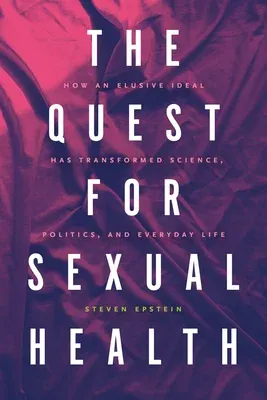Offering an entryway into the distinctive worlds of sexual health and
a window onto their spillover effects, sociologist Steven Epstein traces
the development of the concept and parses the debates that swirl around
it.
Since the 1970s, health professionals, researchers, governments,
advocacy groups, and commercial interests have invested in the pursuit
of something called "sexual health." Under this expansive banner, a wide
array of programs have been launched, organizations founded, initiatives
funded, products sold--and yet, no book before this one asks: What does
it mean to be sexually healthy? When did people conceive of a form of
health called sexual health? And how did it become the gateway to
addressing a host of social harms and the reimagining of private desires
and public dreams?
Conjoining "sexual" with "health" changes both terms: it alters how we
conceive of sexuality and transforms what it means to be healthy,
prompting new expectations of what medicine can provide. Yet the ideal
of achieving sexual health remains elusive and open-ended, and the
benefits and costs of promoting it are unevenly distributed across
genders, races, and sexual identities. Rather than a thing apart, sexual
health is intertwined with nearly every conceivable topical debate--from
sexual dysfunction to sexual violence, from reproductive freedom to the
practicalities of sexual contact in a pandemic. In this book Steven
Epstein analyzes the rise, proliferation, uptake, and sprawling
consequences of sexual health activities, offering critical tools to
assess those consequences, expand capacities for collective decision
making, and identify pathways that promote social justice.

